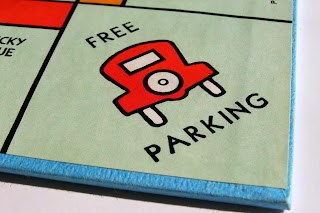 I have never outright awarded any player of mine for food they've brought to game, nor do I think I would; still, I consider offerings to the feast of the DM as almost sacred. If for nothing else, it pays tribute. This Deity of the Dice has been spoiled, and I could not be more pleased.
I have never outright awarded any player of mine for food they've brought to game, nor do I think I would; still, I consider offerings to the feast of the DM as almost sacred. If for nothing else, it pays tribute. This Deity of the Dice has been spoiled, and I could not be more pleased.Let's be clear -- this has largely been true, as far as I can attest from other DMs' confessions: a happy DM keeps his party happy in return. Food just happens to be the schema commonly framing that cycle.
All jokes set aside, I am no "Bacchus of the Orc Throne", but my games are constructed around a great deal of work and effort to keep my players entertained, engaged, and content with setting some time aside for tabletop every week. So yes, I appreciate some gratitude. Gratitude is Chicken Soup for DM Soul (remember that series?).
 |
| Pirate Treasure Map themed cupcakes! |
 |
| Details matter -- the pirate gummy bleed out |
On the launch night of my new campaign, to which my players had a great deal of story exposition prior to playing, she brought in a tray of cupcakes that completely represented the world the players were in. Oceans, floating kingdoms, rare and magical stones...and all this presentation with an equally impressive taste. In another game DM's pirate game, this same player brought cupcakes that resembled a full treasure map, including swashbuckling gummy bears and Swedish fish infested oceans.
Come on, what DM wouldn't feel completely honored?
What foodies have been a part of your games? Is there bribery afoot?
I wonder if I should start being bribed? Hmm...





